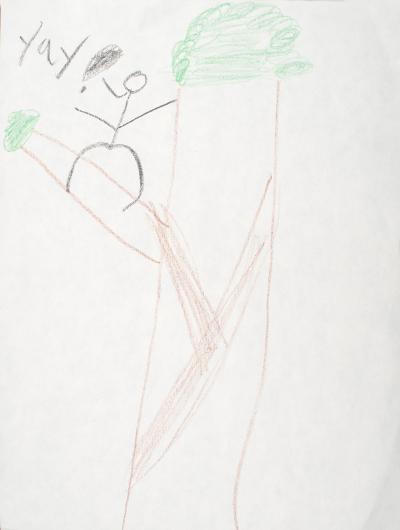Physically active kids who spend a lot of time outdoors are not only healthier, they have a stronger sense of self-fulfillment and purpose than those who don't - and more spirituality too.
In the Journal of the Study of Religion, Nature and Culture paper, children who played outside five to 10 hours per week said they felt a spiritual connection with the earth and felt their role is to protect it.
Children's aesthetic values were also tallied, and showed that those who engage in free play outside on a regular basis have a deep appreciation for beauty (i.e. balance, symmetry and color), order and wonder (i.e. curiosity, imagination and creativity). For example: lush green bushes, pattern-like blue spots in water and fascination with bees' nests.
This is common sense. Compare the true levels of protection and appreciation of nature between hunters and fishers and hikers and someone who works for an environmental group in a corporate office building and it isn't even close. With active kids, it is even more apparent.

A child's drawing, portraying a happy place in nature.
Credit: G.L. Kohuth, Michigan State University
"These values are incredibly important to human development and well-being," said Gretel Van Wieren, assistant professor of religious studies at Michigan State University. "We were surprised by the results. Before we did the study, we asked, 'Is it just a myth that children have this deep connection with nature?' But we found it to be true in pretty profound ways."
For example, the children in her study expressed feelings of peacefulness and some believed that a higher power had created the natural world around them. They also reported feeling awestruck and humbled by nature's power, such as storms, while also feeling happy and a sense of belonging in the world.
Van Wieren and co-researcher Stephen Kellert, from Yale University, used a mix of research methods, including in-depth interviews, drawings, diaries and observation, as well as conversations with parents. Seven of the 10 children in the study – who were 7 to 8 years old – were from families with a Christian background.
The researchers also found parents of the children who expressed the highest affinity toward nature and the strongest spirituality spent significant time outdoors during their childhoods. And many of the parents believed such experiences shaped their adult lives and spirituality.
So what is it about nature?
Nature offers a diverse display of colors, sights and sounds; uncertainty; multisensory qualities; and above all, aliveness, Van Wieren said. Nature is usually in a state of flux, which fosters problem-solving opportunities that build self-confidence.
It's basically the best real-life video game ever. But true video games could be dampening that.
"This is the first generation that's significantly plugged in to a different extent and so what does this mean?" Van Wieren said. "Modern life has created a distance between humans and nature that now we're realizing isn't good in a whole host of ways. So it's a scary question: How will this affect our children and how are we going to respond?"





Comments